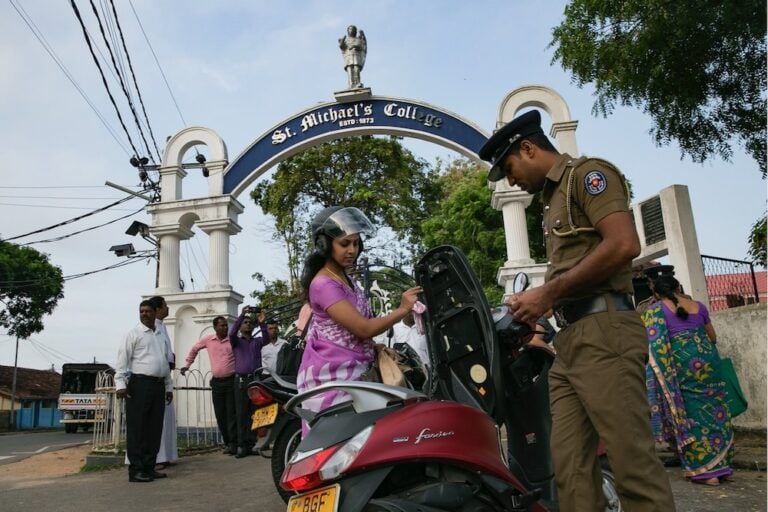(IPI/IFEX) – The following is a 17 June 2004 IPI press release: Vienna, 17 June 2004 IPI Questions “Dual Role” of Sri Lankan Media Minister According to news reports, Mangala Samaraweera, a close associate of President Chandrika Kumaratunga and a previous holder of the ministerial position, was recently sworn in as Sri Lanka’s Media and […]
(IPI/IFEX) – The following is a 17 June 2004 IPI press release:
Vienna, 17 June 2004
IPI Questions “Dual Role” of Sri Lankan Media Minister
According to news reports, Mangala Samaraweera, a close associate of President Chandrika Kumaratunga and a previous holder of the ministerial position, was recently sworn in as Sri Lanka’s Media and Information Minister. The appointment came after the former Media and Information Minister, Reginald Cooray, resigned to contest in the Western Provincial Council election. News reports also suggest that, as well as this ministerial position, Samaraweera will also act as the Cabinet Spokesperson.
Commenting on the appointment, IPI Director Johann P. Fritz said, “While IPI is always wary of the position of Media and Information Minister, because it often implies a ministry dedicated to the control of the media, I am deeply worried by the minister’s dual role. To my mind there is a clear conflict of interest between the role of a minister whose duty it is to oversee the media in an unbiased and objective manner and the political role of a cabinet spokesperson whose duty it is to spread the government’s message.”
“It is difficult to appreciate how the minister will be able to make decisions on governance and compliance issues regarding the media while also energetically arguing the government’s views on these self-same issues.”
“A clear example of the co-mingling of these two roles came in a recent speech of the minister to the heads of the state media institutions when he apparently said, ‘Our main enemy is the United National Party. In future, we will identify our main enemy and [through the state media] attack them.’ To my mind, these are the words of a government spokesperson but not the words of an information minister whose role it is to be impartial.”
“Moreover, I am also concerned that the words of the minister reinforce the impression that the present government has no intention of undergoing the process of turning the state media into editorially independent organisations. I note that there have been promises made on this issue but fundamental changes have not been forthcoming,” he added.
“As IPI said in a letter on state broadcasting to President Kumaratunga in early November 2003, when many of the heads of state media were removed, ‘the ease with which state-controlled broadcasters were undermined. . . is. . . evidence of a fundamental weakness in Sri Lankan broadcasting.’ The letter went on to suggest the introduction of ‘new legislation that turns state-controlled organisations into public service broadcasters and affords protection for these same media against the intrusion of the executive and legislative branches. . .'”
“With talk of using the state media against ‘enemies,’ and in order to safeguard future elections, I think the time is right for these changes to be made.”
Background Note: Sri Lanka was formerly on the IPI Watch List. The country was removed from the list on 17 September 2003.


